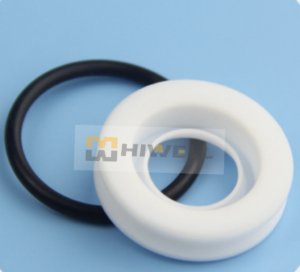What is the Virgin PTFE Advantage?
What are its advantages? The following points are clearly listed for you.
High temperature resistance, low temperature resistance, corrosion resistance, climate resistance, high lubrication, non adhesion, non toxic.
1. High temperature resistance – operating temperature up to 250℃.
2. Low temperature resistance – good mechanical toughness; 5% elongation can be maintained even when the temperature drops to -196℃.
3. Corrosion resistance – inert to most chemicals and solvents, resistant to strong acids and bases, water and various organic solvents.
4. Weather resistance – has the best aging life of plastics.
5. High lubrication – the lowest friction coefficient of solid materials.
6. Non-adhesion – is the minimum surface tension in a solid material and does not adhere to any substance.
7. Non-toxic – with physiological inertia, as artificial blood vessels and organs implanted in the body for a long time without adverse reactions.
8. Insulation – resistance to 1500 V high voltage.
What is the Virgin PTFE Disadvantage?
What are its disadvantages? The following points are clearly listed for you.
1. PTFE has outstanding non-viscosity, which limits its industrial applications. It is an excellent anti-stick material, which makes bonding to other surfaces extremely difficult.
2. PTFE has low thermal conductivity and poor thermal conductivity, which not only prevents it from being used as a bearing material, but also makes it difficult to harden thick wall products.
3. The linear expansion coefficient of PTFE is 10~20 times that of steel, larger than most plastics, and its linear expansion coefficient changes very irregularly with the change of temperature. In the application of PTFE, if the performance of this attention is not enough, it is easy to cause losses.
4. When heated above 400℃, the pyrolysis rate of PTFE is accelerated gradually, and the decomposition products are mainly tetrafluoroethylene, perfluoropropylene and octa-fluorocyclobutane. Above 475℃, the decomposition product contains a very small amount of perfluoroisobutene, which is highly toxic. Note that the heating temperature should not exceed 400℃, and the laboratory should have a good ventilation system to eliminate toxic gases.


